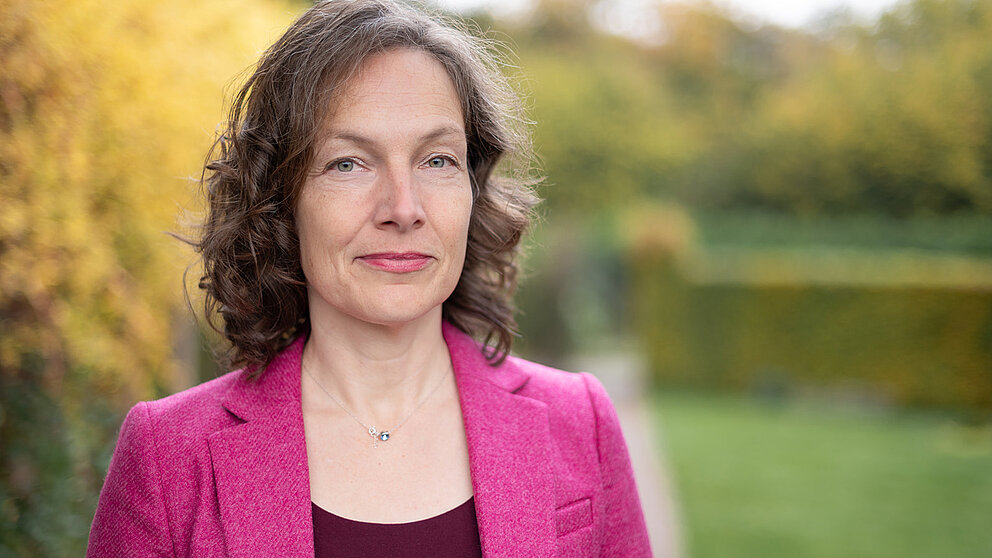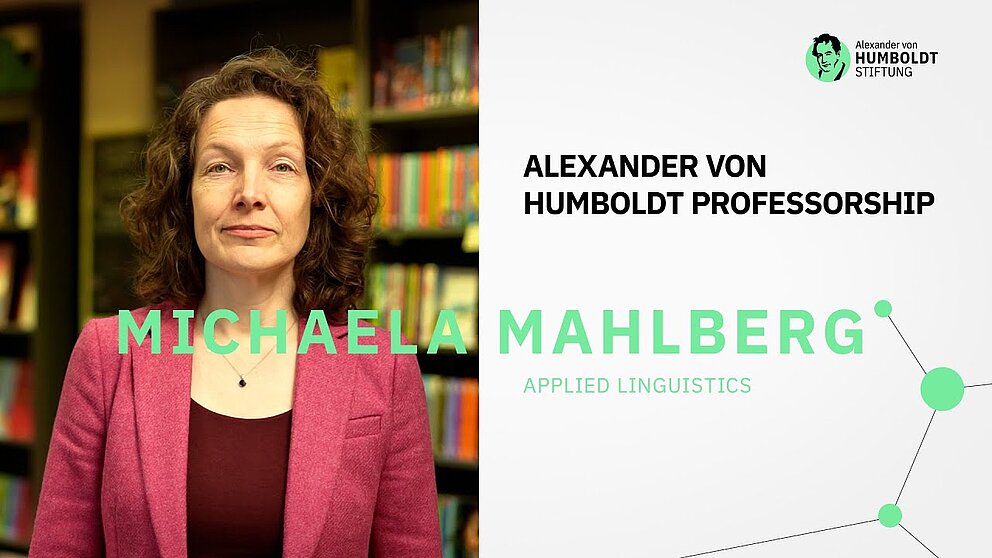Jump to the content
- {{#headlines}}
- {{title}} {{/headlines}}

Contact
Press, Communications and Marketing
Tel.: +49 228 833-144
Fax: +49 228 833-441
presse[at]avh.de
Applied linguistics
Language is the key to the world. Michaela Mahlberg uses computer-aided, quantitative linguistic methods to study huge bodies of text, not least with regard to the social function of language. She became known for her work on Charles Dickens at the crossroads of corpus linguistics and literary studies.
The frequency and context in which individual words or phrases occur allow inferences to be drawn about culture and society. How often and in which thematic context the word “management”, for example, appears in the text corpus NOW (News on the Web, online media since 2010) can be utilised for further analysis. Mahlberg’s contributions to the digital humanities thus help us to better understand the digitised world of the 21st century.
Mahlberg’s methods of computer-aided analysis go beyond pure description. Her research forms the basis for driving socially-relevant change. One example is the transdisciplinary pilot project on the water crisis that she is conducting together with the colleague from the UNESCO Chair in Water Science at the University of Birmingham. Drinking water is in short supply in many regions of the world. But how can one make broad sections of the population aware of the problem? The first step is to understand the different meanings we ascribe to water and the contexts in which we talk about water. Mahlberg analyses vast amounts of text from newspapers, UN reports, policy recommendations and literary works. From this, the most diverse water discourses can be identified so that communication experts can subsequently determine which connections between them need to be emphasised in the future to ensure that the importance of water becomes clear to everybody.
As the world has become digitised, language itself has changed. Michaela Mahlberg wants to take this into account in developing methods and theories in corpus linguistics. At FAU Erlangen-Nürnberg, the Humboldt Professor is invited to become the director of the Department of Digital Humanities and Social Studies (DHSS) that was founded in 2021, with the aim of pooling and expanding activities in the field of digital humanities. The centre should, moreover, help to explore and better understand the social dimension of the datafication and algorithmisation of culture and society, too.
Brief bio
Michaela Mahlberg read English and mathematics at the University of Bonn and the University of Exeter, United Kingdom. In 2004, she completed a doctorate in English linguistics at Saarland University in Saarbrücken. She taught English linguistics at the University of Bari Aldo Moro (Italy), Liverpool Hope University (UK), the University of Liverpool (UK) and the University of Nottingham (UK) before joining the University of Birmingham, UK, as a professor of corpus linguistics in 2015. She is the Vice-President of the International Dickens Society. Michaela Mahlberg is the editor of the International Journal of Corpus Linguistics. Under her leadership, the internet application CLiC (Corpus Linguistics in Context) was developed, which is now used for research and teaching in over 100 countries.


